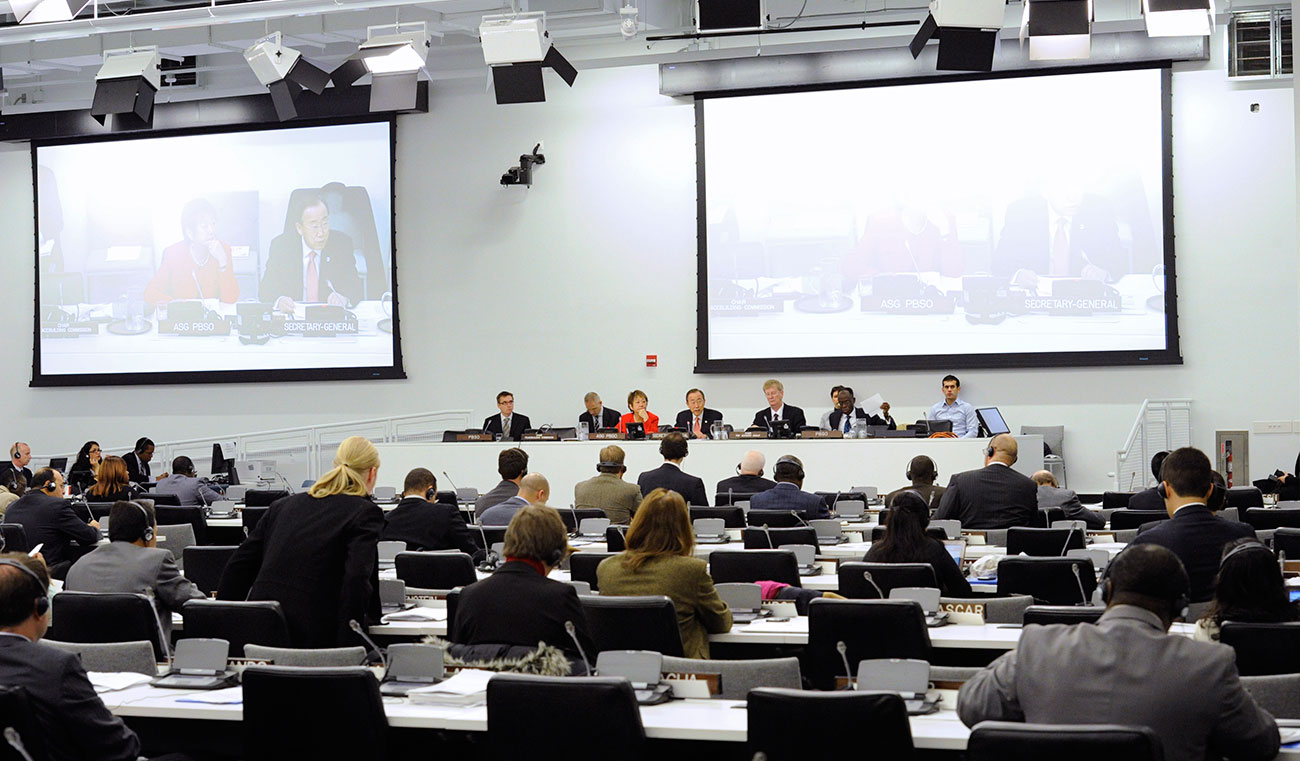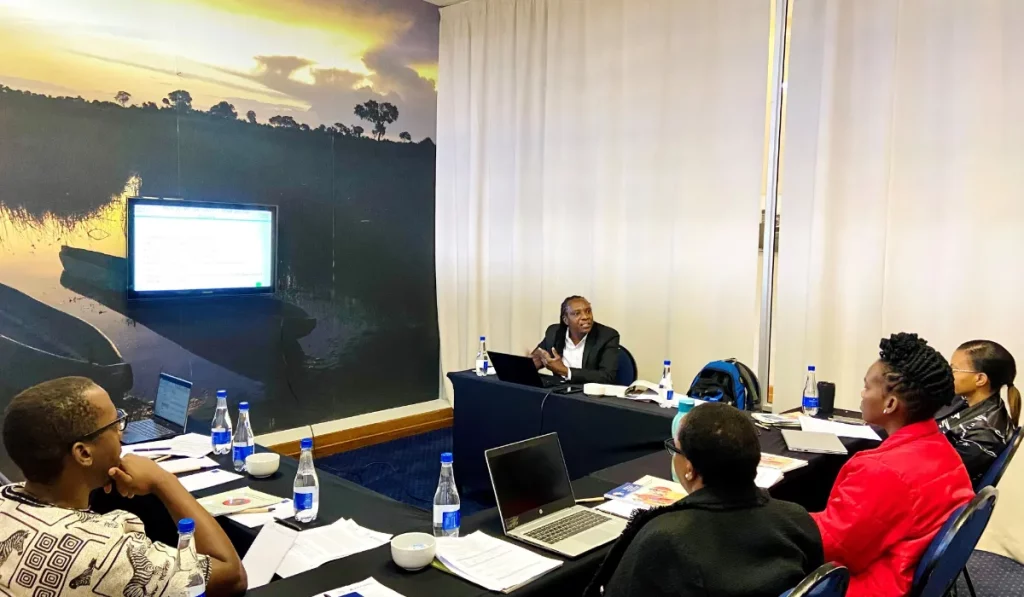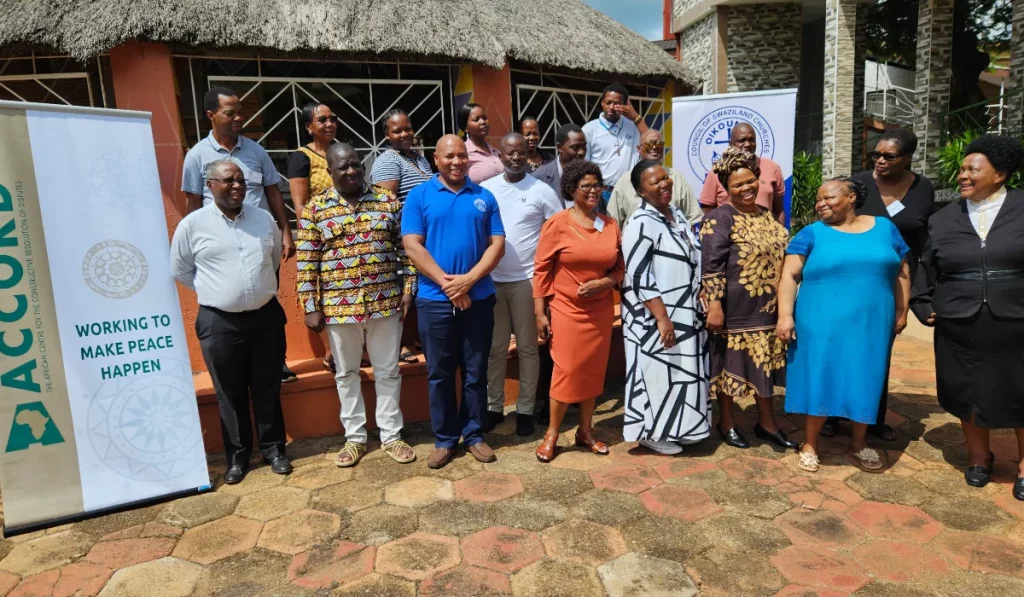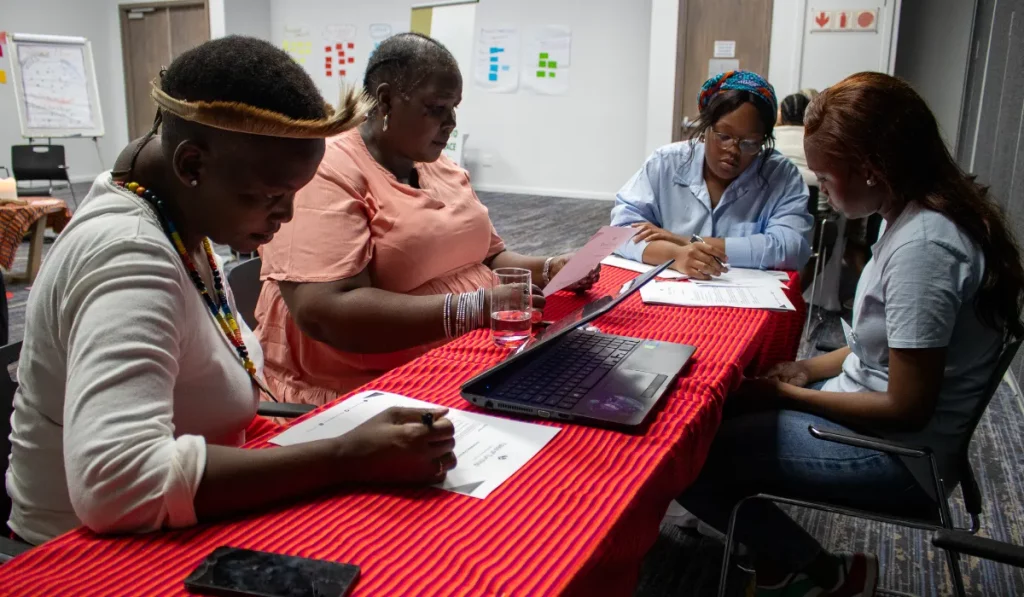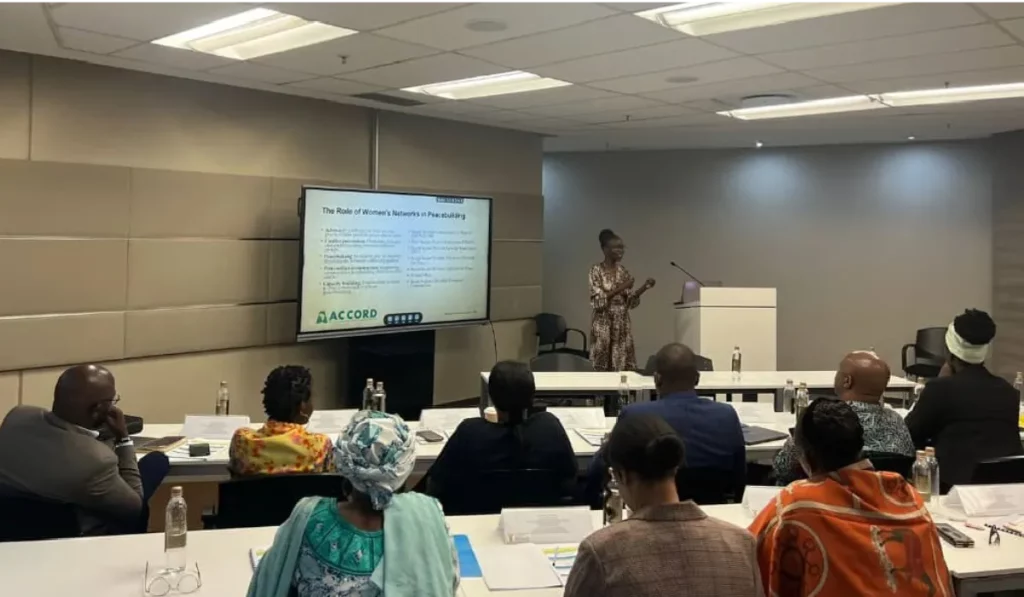In fulfilling its objective of providing support to the Africa Standby Force (ASF) and the Regional Economic Communities (RECs) and Regional Mechanisms in Africa through policy development, the Training for Peace Programme at ACCORD (TfP/ACCORD) participated in a validation workshop hosted by the Economic Community of West African States (ECOWAS) Standby Force (ESF).
The aim of the workshop was to validate ESF’s draft Civilian Dimension Policy Framework and improve the draft before final adoption by the Mediation and Security Committee. The workshop provided a forum for expert stakeholders to critically examine the ESF draft Civilian Dimension Policy Framework and provide recommendations for improving the policy framework. The development of this policy framework is among the efforts of the ESF – a building block of the ASF – to strengthen the civilian component of the Standby Force ahead of the 2015 Full Operational Capability.
The workshop was held from 22 to 23 May 2014 in Abuja, Nigeria. It brought together representatives of ECOWAS, the African Union, Kofi Anan International Peacekeeping Training Centre (KAIPTC), West African Civil Society Institute (WACSI), GIZ, United Nations High Commission for Refugees (UNHCR), Ecole de Maintien de la Paix (EMP), Save the Children, National Defence College (NDC) – Nigeria, International Committee of the Red Cross (ICRC), and the Department of Peacekeeping and Regional Security (DPKRS). The TfP Programme at ACCORD was represented by Ms Olivia Victoria Davies – Peacekeeping Unit Programme Officer.
The workshop analysed the the evolving roles of civilians in Peace Support Operations and further focused on the context of civilian peacekeepers looking at examples from the Africa Union mission in Somalia (AMISOM) and African-Led International Support Mission in Mali (AFISMA). It also identified challenges and best practice in analysing and integrating the civilian dimension in peacekeeping operations. This workshop further sought to raise awareness on the role of civilians in contemporary peacekeeping missions. Particularly, emphasis was placed on the overview of the ESF Civilian Dimension Policy Framework, recruitment of Civilian Personnel for past and future ESF PSOs as well as on the progress that ECOWAS has made on the civilian dimension rostering process. The discussions following the overview of the ESF Civilian Dimension Policy Framework brought out the need to focus on internal and external coordination mechanisms in the draft policy framework to ensure efficient implementation of the policy.
The workshop contributed in shaping the aspect of coordination mechanism between the civilian, military and police components in the draft ESF Civilian Dimension Policy Framework. TfP/ACCORD contributed its expertise on the civilian dimension of the ASF in providing relevant input on the draft policy based on lessons learned from the experiences of supporting other standby forces in Africa on policy development. During the assessment of the policy, series of paragraphs were identified for corrections and these paragraphs are mostly related to substantive civilian roles and functions.
The corrections identified and recommendations that emanated from the workshop will contribute towards improving the draft policy for final adoption by the ECOWAS Mediation and Security Committee. Moreover, the workshop sought to develop a more structured framework within which the following key outcomes will be the focus; to further develop the civilian dimension of the ESF as well as increased buy-in and understanding of regional stakeholders on the need for multidimensional capacities in peace support operations (PSOs); to develop a more effective approach by the ECOWAS Commission for the planning deployment and management of current and future multidimensional PSOs; establish a network of key stakeholders and interlocutors in support of the civilian dimension agenda; and harmonise the ESF civilian dimension with the ongoing efforts at the level of the AU.
The Training for Peace Programme at ACCORD is an initiative funded by the Norwegian Ministry of Foreign Affairs.

